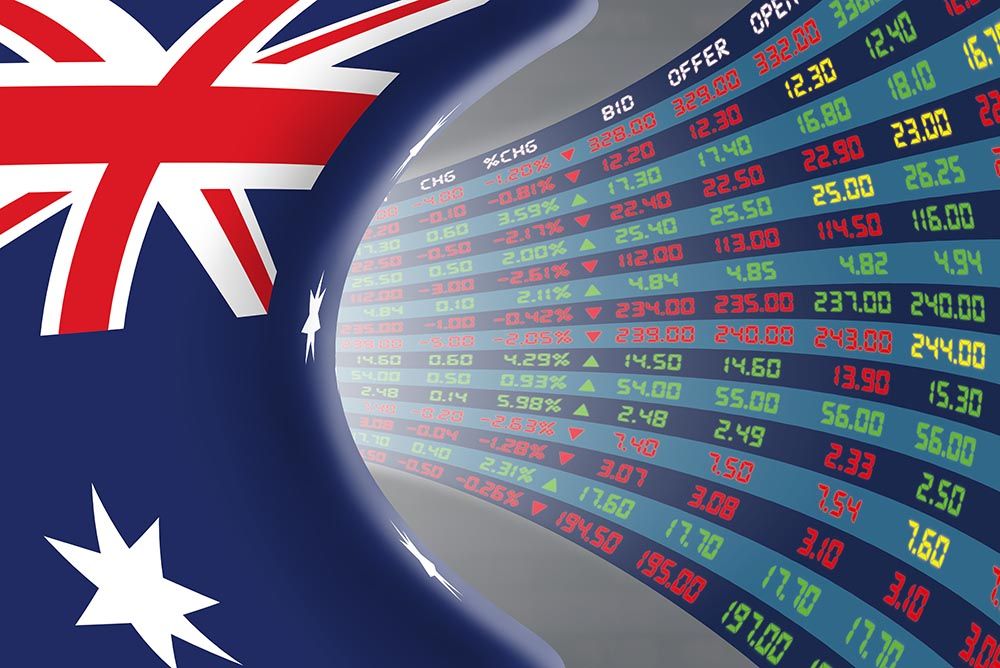This Australian Dollar Rally is Looking Stretched say Analysts
- ING says AUD rally is looking overdone
- AUD softer, despite markets rallying on Tuesday
- JP Morgan forecast lower AUD/USD rate by year-end

Secure a retail exchange rate that is between 3-5% stronger than offered by leading banks, learn more.
There is a distinct element of caution in the Australian Dollar exchange rate complex as markets move through the mid-week session, with traders unwilling to bid the currency higher despite the broadly firmer tone to risk sentiment that is characterising equity markets.
Most global equity indices are trading higher with investors opting to look through the pockets of covid-19 infection spikes in China and the U.S. and continuing to buy into the recovery story, conditions that would typically allow the AUD to lead its peers.
However, optimism is not shared across all asset classes with commodities looking tired: oil prices are down by half a percent as are gold, silver and platinum prices. Indeed, it could be that because commodity prices are softer the 'commodity currency' Australian Dollar is also looking less enthused than it has done in past episodes of equity market rallies.
The Aussie Dollar's limited traction means the Australian-to-U.S. Dollar exchange rate is lower on the day at 0.6885, and the Pound-to-Australian Dollar exchange rate is softer at 1.8224.
The Australian Dollar's appreciation of recent weeks is starting to look stretched according to analysts who forecast that some of the gains will be reversed by year-end, even if global stock markets and commodity prices continue to rise in value.
"With the bar for positive surprises set quite high, the AUD still dealing with the sense that the recent rally was overdone and an unresolved (and very dangerous) diplomatic spat with China creeping in the background, we don’t expect AUD to be back on investors’ preference list... even if risk remains supported," says Francesco Pesole, FX Strategist at ING.
The Australian Dollar retains a high correlation with the performance of equity markets and commodity prices, tending to rise and fall in tandem. As the global economy continues its exit from lockdown there remains scope for both stocks and commodity prices to keep rising, however the risk for those expecting a stronger Australian Dollar is that the link breaks and the currency is left behind.
"G10FX is an equity trade. The typical high-beta currencies like AUD/NZD/CAD have led the G10 complex in performance against the USD amid high and stable correlations to equities," says Mark McCormick, Global Head of FX Strategy at TD Securities.
But based on a view that the AUD rally has reached its full potential, ING are forecasting AUD/USD back down at 0.6700 in one month, down from current levels around 0.6914, which should result in a weaker Australian Dollar on other exchange rate crosses.
The view at ING is shared by analysts at investment bank JP Morgan, who have said they also remain concerned on how trade tensions centred on China will impact on the currency.
JP Morgan have told clients they have raised their Aussie Dollar forecasts but still pencil in underperformance by the currency over the medium-term as they say growth challenges will persist, "exacerbated by poor AU-China relations".
Their AUD/USD forecast is raised to 0.66 for year-end, up from 0.65 previously.
Turning to the short-term, the Australian Dollar is looking firm in the mid-week session with a tentative appreciation in stock markets confirming that for now the currency continues to take instruction from broader trends.
The general trend of travel in markets is higher, but as we have seen over the course of the past 24 hours the potential for bouts of volatility is elevated. Markets and the Australian Dollar turned lower Tuesday on news that China was enforcing a strict lockdown in Beijing where a new cluster of covid-19 infections had been discovered. "A number of reasons may have injected a degree of caution in markets including concerns about rises in Covid-19 cases in Beijing and parts of the US, border skirmishes between China and India, and growing tensions on the Korean peninsula," says Hann-Ju Ho, Economist at Lloyds Bank Financial Markets.
However, news of a successful covid-19 treatment that looks to significantly lower the mortality rate of those seriously ill with the disease has helped ensure damage is largely limited. It was revealed by Oxford researchers that trials of Dexamethasone on covid-19 sufferers - a drug which has been around for 60 years - reduced deaths by a third among patients on ventilators and by a fifth of those receiving oxygen only.
"This is the most important trial result for COVID-19 so far. Significant reduction in mortality in those requiring oxygen or ventilation from a widely available, safe and well known drug. Many thanks to those who took part and made it happen. It will save lives around the world," says Professor Chris Whitty, England's Chief Medical Officer.
At the time of writing European markets are positive and this could well ensure the Australian Dollar recovers some of the ground it lost earlier in the week, which is understandable considering that on balance there has not been any significant deterioration in the newsflow. Localised lockdowns are likely to become the new norm as countries fight pockets of outbreaks in the disease and therefore the China news is unlikely to be a lingering concern.
Meanwhile expectations for further medical breakthroughs will grow as many trials will now be able to start releasing results.




